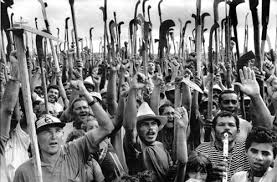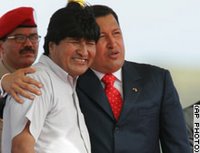On the Victory of Hamas
I wrote this in response to the Boston Globe's editorial today on the victory of Hamas in the Palestinian elections:
To the Editor,
The Boston Globe’s editorial, “Fund peace, not terror,” January 31, 2006, congratulates Secretary of State Rice for her “firm but fair” demand that Hamas accept “the premise of a negotiated peace…” A worthy requirement indeed, that would have been far more admirable if she had extended the demand to include the two major obstacles to a peaceful solution since the 1970s – the United States and Israel.
To take but one example, in 1976 the Security Council voted on a resolution (S/11940) calling for a two-state solution, the return or compensation of the refugees, and the security of all states. The PLO supported the measure; the US provided the sole vote against, killing it.
The Globe sternly writes that “Hamas cannot receive foreign donations if it persists in suicide bombings and its call for a one-state solution…” - no doubt a sensible sentiment. Meanwhile, Israel remains the leading recipient of US foreign aid despite killing far more civilians (often deliberately targeted, contrary to mythology) and annexes valuable portions of the West Bank, destroying the possibility of a viable Palestinian state – all without a peep from the Globe.
The Globe Editorial Board’s touching belief in the fairy tale of benevolent US foreign policy does not speak well to the state of our democracy.
Sincerely,
Steven Fake
Brookline
Outlook on it getting printed: not good.





